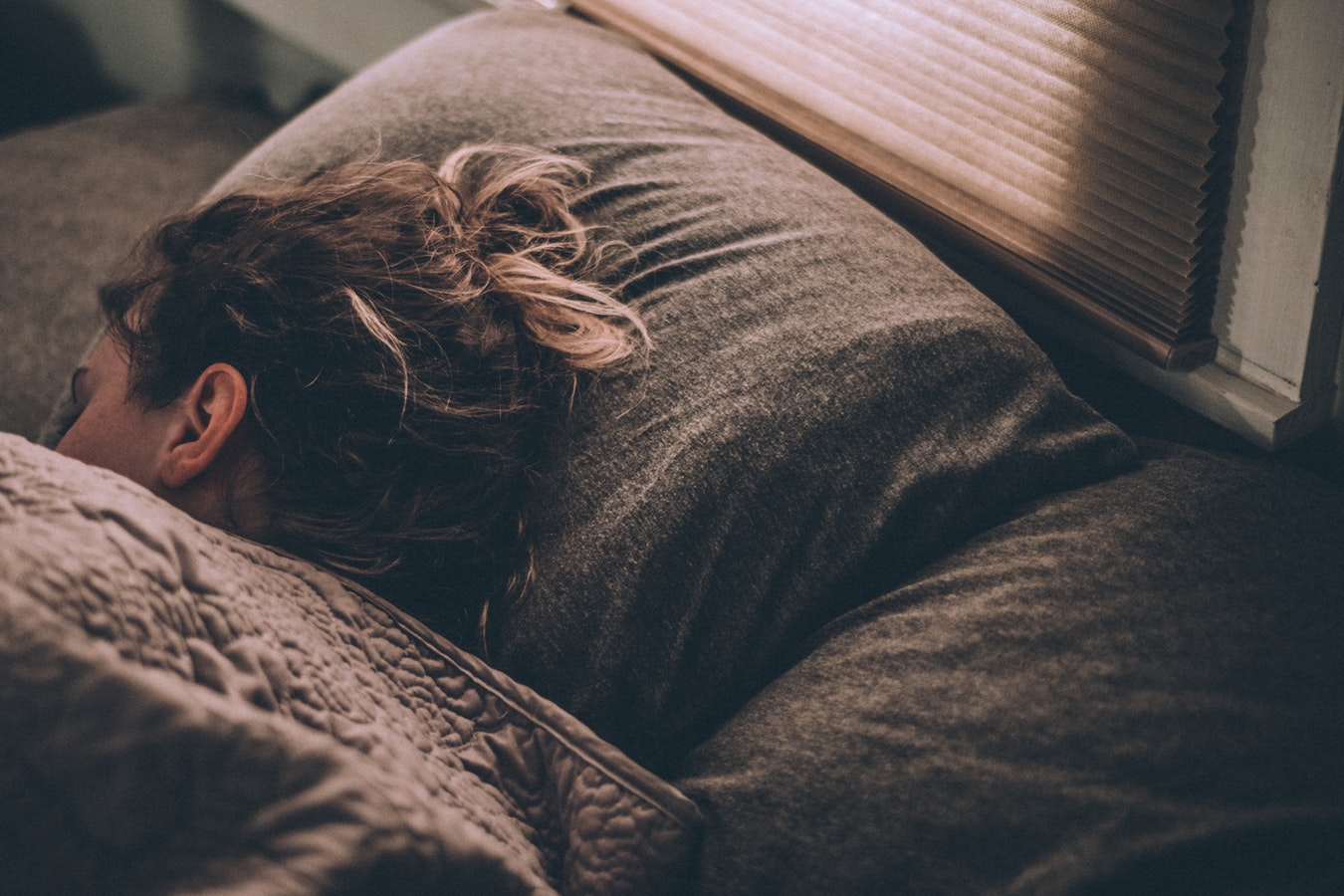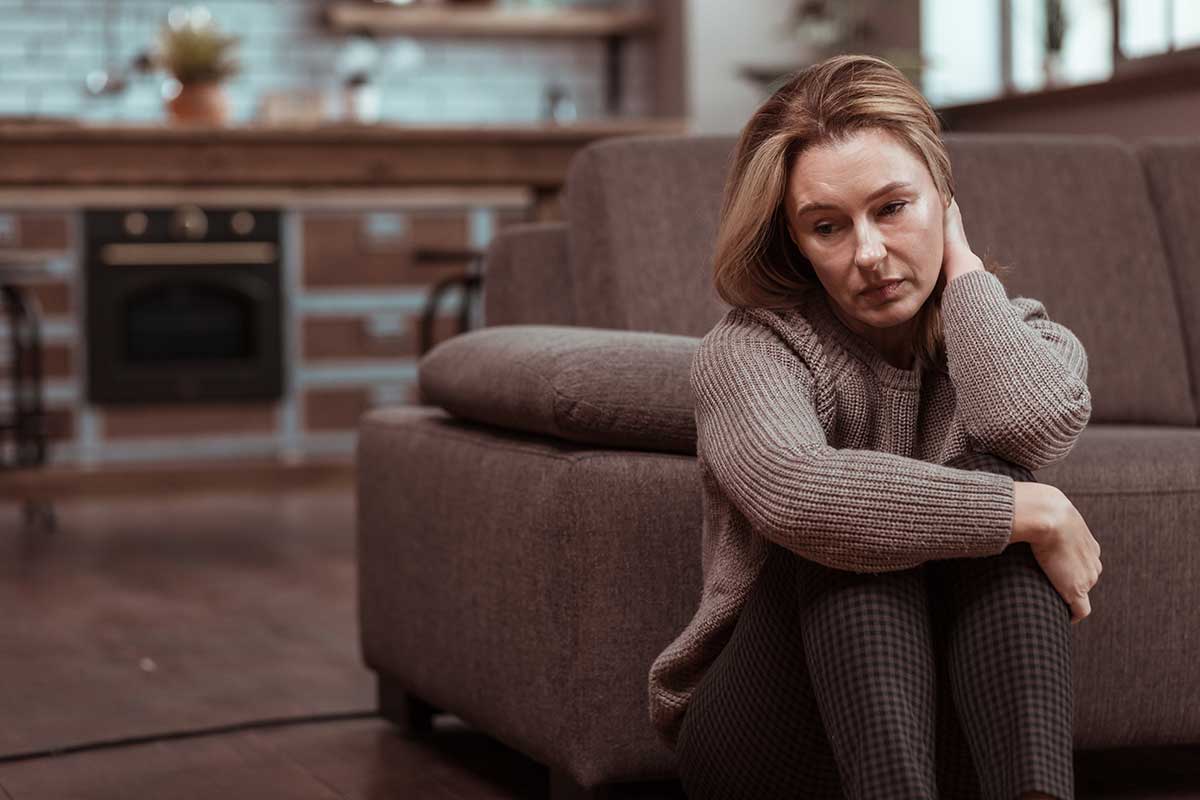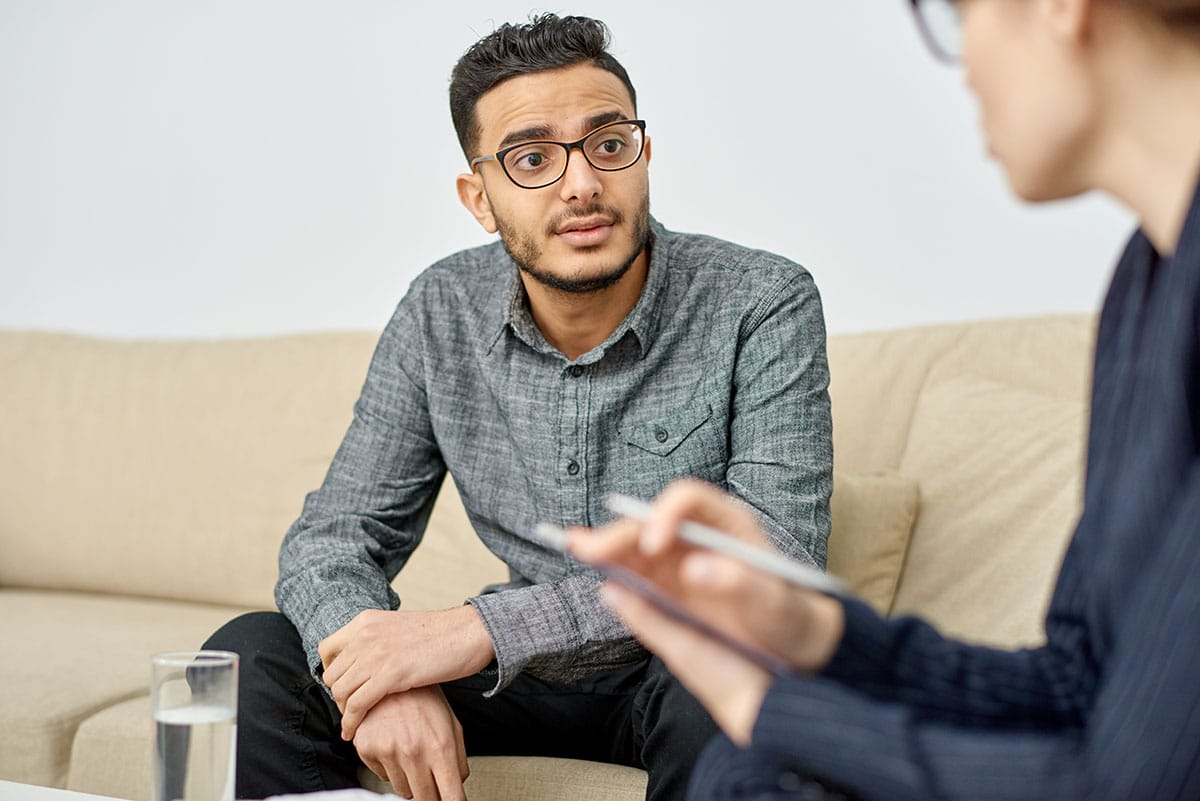Taking Trazodone for Sleep Could Come With a Cost
While primarily used as an antidepressant, many doctors are prescribing trazodone for sleep issues. It’s important to talk with you doctor about the side effects trazodone can cause, and determine whether or not trazodone is an effective agent for insomnia and other sleep disorders and, more importantly, whether it’s safe to use in this capacity. Although it’s consider safe, trazodone addictions can develop in some people. If you need help with a drug of alcohol addiction talk to Landmark Recovery today. Read more to understand the risks associated with taking trazodone, including how the drug impacts your body and brain. Our infographic helps explain how trazodone works. Let’s start by examining what trazodone does.
What Is Trazodone?
Trazodone was first developed to treat the symptoms of depression. Doctors may also prescribe trazodone for the treatment of anxiety, schizophrenia, and uncontrollable movements that crop up as a side effect of other meds. Trazodone belongs to a class of medications called serotonin modulators. These drugs work by moderating levels of serotonin – a neurotransmitter – in the brain and increasing its availability in the CNS (central nervous system). Because of it’s effects on serotonin, trazodone functions well as a sleep aid.
Many other antidepressants are more effective at treating depression while the chemical composition of trazodone gives it mild sedating properties, often unwanted if being used to treat depression. So, although not designed as a sedative or hypnotic to address sleep disorders, doctors are now prescribing trazodone off-label to mitigate insomnia.
First approved by the FDA in 1981 (under the brand name Desyrel), trazodone is now available as a generic medication produced by several leading drug companies. Oleptro is the only remaining brand name for trazodone. Categorized as a SARI (serotonin antagonist reuptake inhibitor), trazodone stops neurons from reabsorbing serotonin once the neurotransmitter has been released into the CNS. It’s through this mechanism that trazodone can help with some cases of depression.
Before we move on to examine the side effects of using trazodone for sleep, what is insomnia? We’ll briefly highlight that right now.
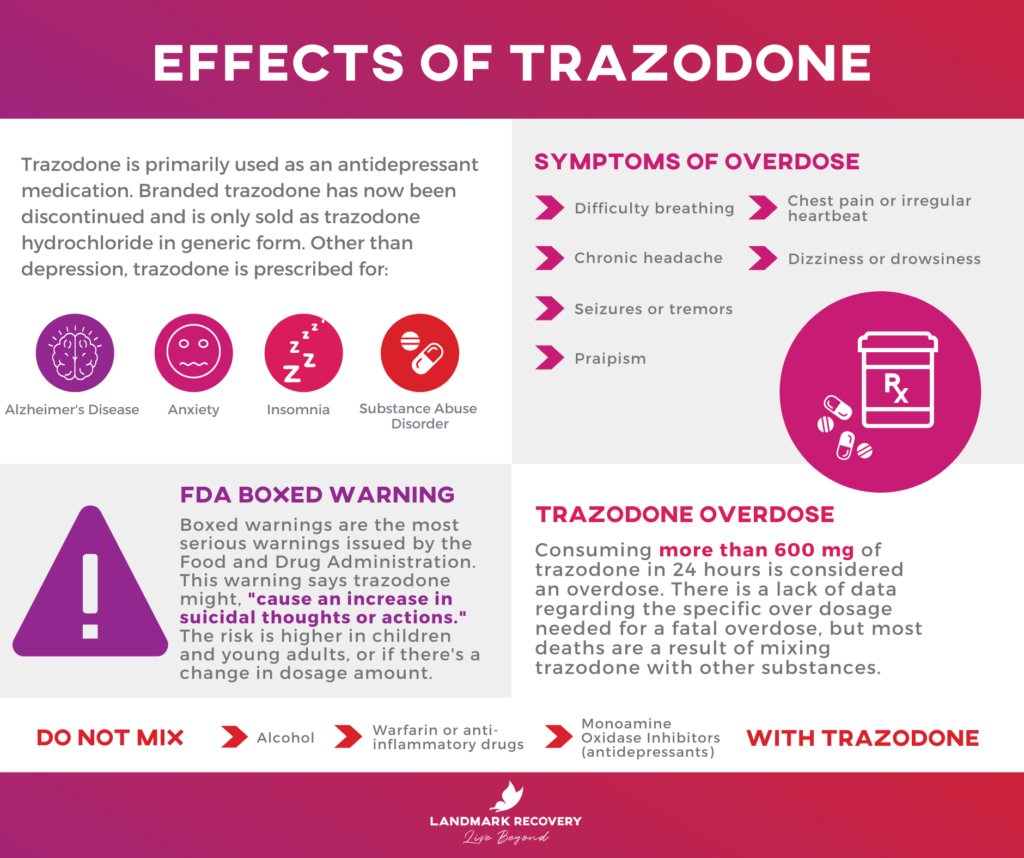
The side effects of trazodone for sleep
What Is Insomnia?
Insomnia is a sleep disorder that can make it hard for people to fall asleep or stay asleep. There are many different types of insomnia, but it’s often assessed in two broad categories, primary and secondary.
- Primary insomnia: With primary insomnia, you have standalone problems with sleep not brought about by other physical or psychological disorders.
- Secondary insomnia: Difficulties sleeping caused by either a medical condition or a mental health disorder is known as secondary insomnia.
Treatment of primary insomnia involves addressing and attacking the sleep problem itself. With secondary insomnia, the condition causing the insomnia needs to be dealt with alongside medical or behavioral treatment of the insomnia itself.
There are multiple sub-types of insomnia:
- Acute insomnia: Typically triggered by a stressful life event, acute insomnia is a brief, fleeting episode of sleep disturbance that often resolves with no need for treatment.
- Chronic insomnia: Insomnia is normally labelled chronic if you have problems falling asleep or staying asleep for at least 3 nights weekly over 3 months or more. There are many causes and treatment varies accordingly.
- Comorbid insomnia: If insomnia occurs alongside another condition, it’s termed comorbid insomnia. Conditions like anxiety and depression often precipitate sleeping problems. Debilitating back pain or conditions like arthritis can also make it hard to sleep.
- Late insomnia: Waking extremely early in the morning and being unable to sleep again.
- Maintenance insomnia: An inability to stay asleep is known as maintenance insomnia and it’s characterized by waking during the night then finding it tough to get back to sleep.
- Sleep onset insomnia: You’re suffering from onset insomnia if you find it tough to fall asleep when you climb into bed.
Many medications are used to address the issues that come with insomnia including Ambien and trazodone.
So, does taking an antidepressant really work if you’ve got insomnia?
Does Trazodone Help You Sleep?
In 2017, a systematic review of trazodone for insomnia identified 45 studies into the safety and efficacy of off-label use of the medication. The review concluded that trazodone is useful for treating both primary and secondary insomnia. Trazodone was also shown to be effective for treating symptoms caused by depression and dementia. That said, physicians and sleep scientists often baulk at the idea of using antidepressants like trazodone for the treatment of insomnia. Popular alternatives like Lunesta and Ambien have been proven to more effectively manage the neurological disorders often associated with insomnia. Cognitive behavioral therapy (CBT) is also promoted as an effective non-pharmacologic solution.
A key advantage of using trazodone to counter sleep issues is that it can be safely used for much longer than most common sleep aids. Normally, prescription sleeping pills are used for no more than two weeks. Trazodone can be safely used for longer than this. The three to six-hour half-life of trazodone makes it most suitable for treating sleep onset insomnia or maintenance insomnia.
Trazodone as a sleep aid has several core benefits:
- Scientifically proven to effectively treat both primary insomnia and secondary insomnia
- Trazodone can be used to treat sleep issues at low doses
- This medication is safely than the alternative medications for elderly patients
- You can find generic trazodone much more cheaply than Ambien
- Trazodone has fewer side effects than most common sleep aids
- Unlike benzodiazepines, trazodone is not addictive
- Trazodone can be used to treat sleep apnea
Sleep scientists recommend CBT along with other appropriate behavioral modifications as a first line of attack against insomnia. If these modalities are not suitable for you or don’t work, the sedative effects of trazodone can be beneficial. So, how much do you need?
Dosage for Sleep
Trazodone tablets come in multiple doses:
- 50mg
- 100mg
- 150mg
- 300mg
When used as a sleep aid, start off with 25 to 50mg and increase the dose if necessary up to 100mg. Studies have also shown that trazodone has utility even in lower doses. So, you can see that trazodone works well for combatting insomnia and that you don’t need to take this non-addictive medication in high doses either. What about the downside of trazodone for sleep, though?
We’ll look now at what side effects you can expect if trazodone is prescribed for insomnia.
Landmark Recovery offers treatment for trazodone addiction and other substance use disorders. Talk to our recovery specialists today if you or a loved one needs help.
Side Effects of Trazodone
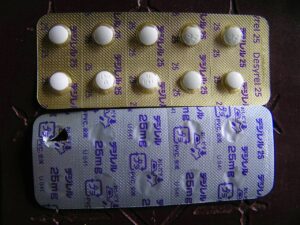
Japanese packaging for a form of trazodone
If you use trazodone to alleviate insomnia and suddenly discontinue use, you might experience symptoms like anxiety, irritability, depression and mild flu-like symptoms. These side effects can be largely eliminated by slowly tapering off and using less trazodone over time. When compared to Ambien, withdrawal symptoms are pretty mild. How about more general side effects, then?
Experiencing any of the following side effects from trazodone is commonplace:
- Blurred vision
- Confusion
- Constipation
- Diarrhea
- Difficulties with walking or coordination
- Dizziness
- Dry mouth
- Fatigue
- Headache
- Lightheadedness
- Low blood pressure
- Muscle pain
- Nausea or vomiting
- Nervousness
- Palpitations
- Rapid heart rate
- Sleepiness
- Skin reactions, such as a rash
- Tremors
- Weight changes
While much less common, you might also experience the following serious side effects from trazodone:
- Abnormal heart rhythms
- Anemia
- Extrapyramidal symptoms
- Fainting
- Hallucinations
- Heart attack
- Hepatitis (liver inflammation)
- Hypertension (high blood pressure)
- Hypomania
- Mania
- Neutropenia (low white blood cell count)
- Orthostatic hypotension (low blood pressure when standing)
- Priapism (persistent painful erection)
- Psychosis exacerbation
- Seizures
- SIADH (Syndrome of Inappropriate Anti-Diuretic Hormone secretion)
- Stroke
- Suicidal thoughts
- Tardive dyskinesia
- Worsening depression
In rare instances, trazodone can provoke serious reactions. If you find difficulty breathing or experience any other severe reaction, call 911 immediately.
According to the Food and Drug Administration, trazodone poses the following serious risks:
- Cardiac arrhythmias: Changed in heart rhythm can occur. The risk is heightened if you have existing heart problems.
- Serotonin syndrome: Too much serotonin accumulating in the body can trigger negative reactions. If you’re taking migraine medication or other supplements, the risk of this is magnified. Symptoms include dizziness, seizures, agitation, and hallucinations.
- Suicidal thoughts: There’s a risk of suicidal thoughts when using trazodone. This is most prevalent in young adults.
- Hypotension: When you stand up, hypotension is an abrupt drop in blood pressure. This happens more frequently when some people use trazodone.
- Heightened danger of bleeding: If you’re taking blood-thinning drugs like Warfarin or Heparin along with trazodone, you should be aware that your risk of bleeding increases.
- Mania: Trazodone can induce feelings of hyperactivity, euphoria, and excessive excitement.
- Priapism: In very rare cases, trazodone can cause priapism, an erection that lasts a long time and causes pain.
We reiterate, you are highly unlikely to experience most of the above side effects if you use trazodone for insomnia. You should nevertheless be aware of everything that could happen. If you have questions be sure to talk to your doctor or call Landmark Recovery if you think you might be suffering from a substance use disorder. They need to be aware of any other drugs you’re taking, including alcohol and caffeine.
How about overdose, then? Is this a danger with trazodone?
Trazodone Overdose
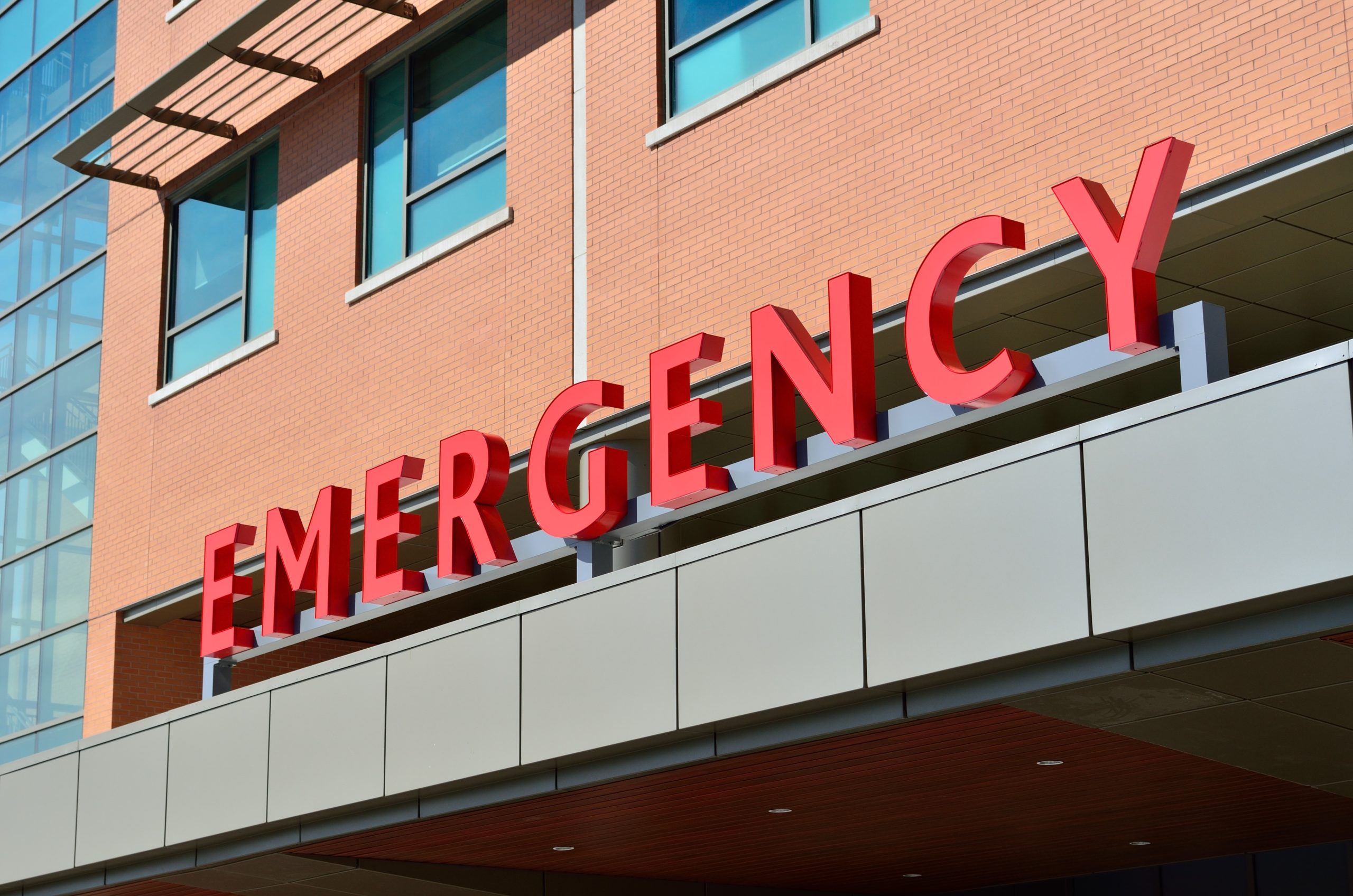
Emergency room for overdosing due to trazodone side effects
Although uncommon, there have been reports of trazodone overdose. The risk of overdosing on trazodone is heightened if you’re drinking alcohol. You should also avoid taking benzodiazepines or any other CNS depressant drugs. All of these can arrest your breathing and slow your reactions.
Symptoms of a trazodone overdose include:
- Drowsiness
- Heart rhythm changes
- Respiratory arrest (breathing stops)
- Seizures
- Vomiting
Any drug overdose can be fatal. Call 911 immediately if you think you might have taken too many trazodone tablets. If you or someone you know is struggling with an addiction to Trazodone or other antidepressants and is searching for an inpatient rehab facility, call us at 888-448-0302 to chat with a recovery specialist. We are available 24/7 to answer your questions and get you the information you need to make the best recovery decision for you. Your call is 100% confidential, and we are ready to help you get started whenever you decide that it’s the right time.
FDA Warning
Just like a number of antidepressants, this medication has been issued with an FDA Black Box Warning. This concerns the increased risk of suicidal thoughts or behaviors in children and young adults. The FDA states that anyone taking trazodone should be “closely monitored” and add that this medication “is not approved for use in pediatric patients”.
The Bottom Line
Despite generally positive results with trazodone for both primary insomnia and secondary insomnia, the American Academy of Sleep Medicine suggests that the potential damage and risk of using trazodone for insomnia outweigh the advantages. Studies have shown that you might only shave off 10 minutes from the time it takes you to fall asleep, and you only reduce the amount of time you’re awake by eight minutes. Admittedly, these are not impressive stats. While not recommended the first line of treatment against insomnia, trazodone can be a highly effective sleep aid. If you haven’t had much luck with behavioral therapy or other types of medication from Ambien to Valium, you could find some benefit from trying trazodone.
Learn More
If you’d like to learn how Landmark Recovery can help patients overcome addiction, don’t hesitate to get in touch. Since trazodone has a low rate of addiction to it and low occurrence of severe withdrawal symptoms, you likely won’t need residential rehab to stop taking it. You may, however, like the idea of exploring CBT as an alternative to medication for sleep. If so, call us on 888-448-0302 and we can help you out.

Choose Recovery Over Addiction
We're here 24/7 to help you get the care you need to live life on your terms, without drugs or alcohol. Talk to our recovery specialists today and learn about our integrated treatment programs.

